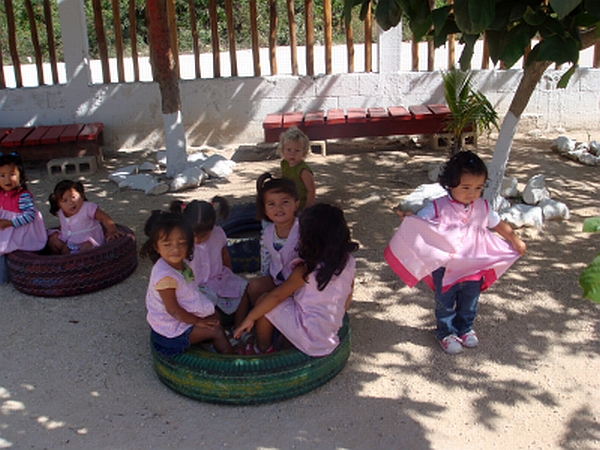At birth the child begins a journey towards an awareness of needs Montessori recognized that all the child’s experiences from the personality. She charged her teachers to bring clarity to the child’s experiences. Infants know what they need, alert the adults around them with their cries, and trust that they will be met. Montessori encouraged parents to talk to the child through each diaper charge and feeding and to give language to their needs, to bring them into focus.
 Montessori infant/toddler communities create a space for the child to learn how to care for their own needs independently. All of the care of the self-activities wiping noses, combing hair, self-feeding, reinforces that they have needs and gives them the skill to meet them. With repetition and practice they slowly gain more and more confidence in their skills of self-reliance. In addition, practical life exercises more he child’s reach beyond himself to the care of the environment: plants, arterial, etc. through grace and courtesy adults guide the children to notice the needs of others in their community. Before long, this develops into empathy, and the small child learns to offer their friends tissue of hold the door open for her.
Montessori infant/toddler communities create a space for the child to learn how to care for their own needs independently. All of the care of the self-activities wiping noses, combing hair, self-feeding, reinforces that they have needs and gives them the skill to meet them. With repetition and practice they slowly gain more and more confidence in their skills of self-reliance. In addition, practical life exercises more he child’s reach beyond himself to the care of the environment: plants, arterial, etc. through grace and courtesy adults guide the children to notice the needs of others in their community. Before long, this develops into empathy, and the small child learns to offer their friends tissue of hold the door open for her.
As they get older, Otoch Paal students expand their skills and their awareness to the more expansive environment and those in it. The beginning primary child continues to work on the skills they began in the infant/toddler community. As they grow, the children show a more mature interest in the outcome and result of these exercises. Practical life activities are done for practical reasons: watering plants because they need water, washing tables because they are dirty. Students help younger children because they need and request help.
When the child arrives in the elementary class she knows her needs, her peer’s needs and how to meet them. She has the skill to care for the self, the environment and, if need be, her friends. The child is confident to communicate her own needs for help. The elementary trained adult introduces the fundamental needs of humans and the Story of Human Beings. The chart of fundamental needs outlines the basic things that everyone must have to live, regardless of geography or culture. These two impressionistic presentations place an awareness of needs on the global stage.
Would you like to become a Montessori Guide and live the joy of Riviera Maya? CURSOS AMI EN CANCÚN
Comentarios recientes